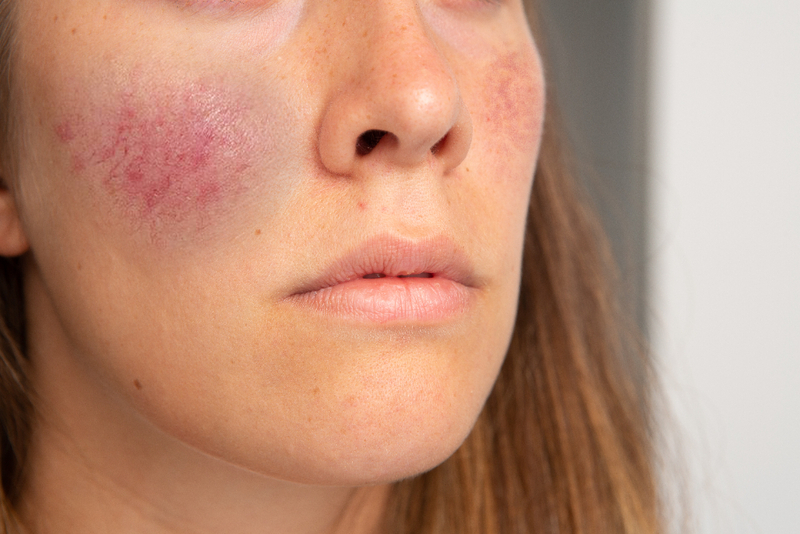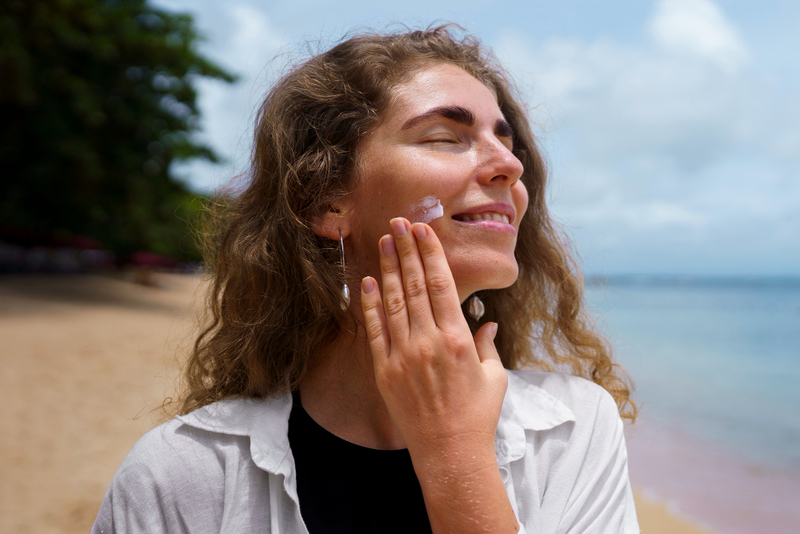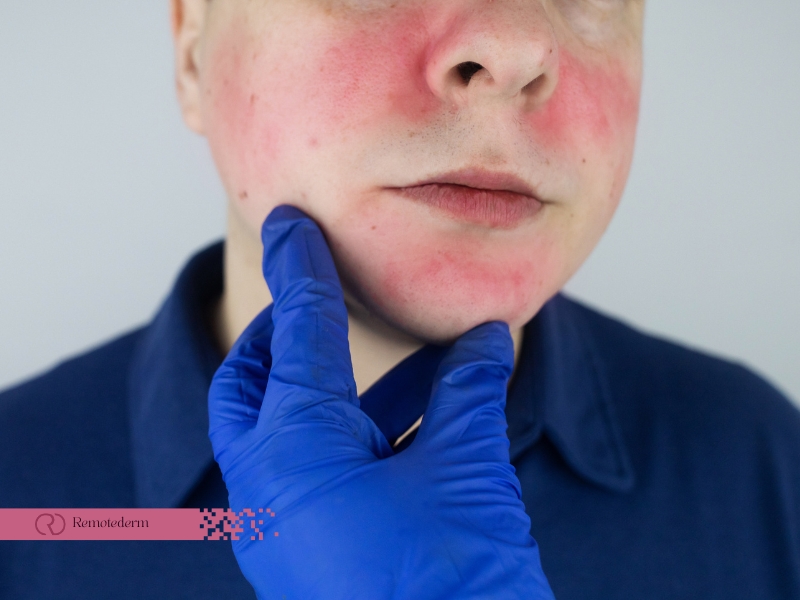Mild Rosacea is a common skin condition that affects millions of people worldwide, including a significant number in Canada. Understanding this condition is the first step towards effective management. In this guide, we’ll explore the causes, symptoms, and treatments of mild rosacea. We’ll also delve into prevention strategies and the advent of online rosacea treatment in Canada. Whether you’re newly diagnosed or seeking more information, this guide is designed to help you navigate your journey with mild rosacea. Your path to better skin health starts here.
What is Mild Rosacea?
Mild rosacea is a less severe form of rosacea, a chronic skin condition that primarily affects the face. It’s characterized by:
- Redness on the face: This is often the first noticeable symptom. The redness, often described as a ‘flush,’ typically starts on the cheeks and can spread to the nose, forehead, and chin.
- Swelling and skin sores that look like acne: These are often mistaken for acne, but they’re actually a common symptom of rosacea. Unlike acne, these sores can be accompanied by a burning or stinging sensation.
- Sensitivity to the sun and certain skincare products: People with mild rosacea often find their skin is sensitive to sunlight and certain skincare products, which can trigger flare-ups.
Causes of Mild Rosacea
Although the precise cause of rosacea is uncertain, a number of variables are thought to play a role in its development:
- Genetics: Rosacea often runs in families, suggesting a genetic link. If your parents or siblings have rosacea, you’re more likely to develop the condition.
- Environment: Exposure to sun, wind, or extreme temperatures can trigger rosacea. Given Canada’s diverse climates, from cold winters to warm summers, protecting your skin from the elements is especially important.
- Skin mites: These tiny insects, known as Demodex folliculorum, live on everyone’s skin. However, people with rosacea tend to have more of these mites on their skin, which can cause inflammation.

How to Treat Mild Rosacea
When it comes to managing and treating mild rosacea, there are several effective strategies that can be employed. These include but are not limited to:
- Topical treatments: These are creams or gels that you apply to your skin. They can help reduce redness and inflammation. Some common topical treatments for rosacea include metronidazole, azelaic acid, and ivermectin.
- Oral medications: If topical treatments aren’t enough, your doctor might prescribe oral antibiotics or other medications. These can help reduce inflammation from the inside out.
- Lifestyle changes: Avoiding triggers, such as sun exposure and spicy foods, can help manage symptoms. It’s also important to use a gentle skincare routine and to protect your skin from the sun.
- Online Rosacea Treatment: With the advent of telemedicine, it’s now possible to receive online rosacea treatment for mild rosacea. This can be a convenient option for those who can’t easily visit a dermatologist in person.
How can I prevent mild rosacea flare-ups?
Preventing flare-ups of mild rosacea involves a combination of lifestyle changes and skincare habits:
- Sun Protection: Rosacea-prone skin can become wildly flushed and red after just a few minutes in the sun. Dermatologists recommend using using a broad-spectrum sunscreen with an SPF of at least 30, especially in Canada’s intense summer sunlight or reflective winter snow.
- Stress Management: If stress causes your rosacea to flare, reducing it can help you avoid another flare-up. Stress-relieving activities such as tai chi, meditation, or joining a rosacea support group can all help.
- Avoid Overheating: Plan ahead of time to avoid a heat-related flare-up. Take warm baths and showers instead of hot ones, dress in layers, and use a fan or air conditioner to stay cool.
- Dietary Changes: The heat from hot beverages and spicy foods can cause some people’s rosacea to flare. Opt for warm or lukewarm beverages and mild foods.
- Alcohol: Red wine may be the biggest culprit when it comes to flare-ups from alcohol. Limiting alcohol consumption can help reduce flares.
- Skincare Products: Avoid any skincare products that contain menthol, camphor, sodium lauryl sulfate, and alcohol, as these can trigger flare-ups. Also, be gentle with your skin and do not rub, scrub, or massage your face.

Final Thoughts
Mild rosacea, while a common skin condition, can be effectively managed with the right knowledge and resources. Understanding its causes, recognizing the symptoms, and knowing the various treatment options are key to controlling flare-ups and maintaining skin health. With the advent of online rosacea treatment, managing this condition has become more accessible than ever. Keep in mind that since each person has a unique type of skin, what works for one may not work for another.
A healthcare provider should always be consulted before beginning a new treatment. Your journey with mild rosacea is personal, but you’re not alone – millions worldwide share your experience, and help is always available. Stay informed, stay proactive, and most importantly, stay positive.
FAQs
Can diet affect mild rosacea?
Yes, certain foods and drinks, such as spicy foods and alcohol, can trigger rosacea flare-ups in some people. It’s a good idea to keep a food diary to identify any potential triggers.
Is mild rosacea contagious?
No, rosacea is not contagious. You cannot catch it from someone else. It’s a chronic skin condition that’s thought to be caused by a combination of genetic and environmental factors.
Can mild rosacea go away on its own?
Rosacea is a chronic condition and typically requires treatment to manage symptoms. While it may wax and wane over time, it generally doesn’t go away on its own.
Is there a cure for mild rosacea?
While there’s currently no cure for rosacea, symptoms can be effectively managed with the right treatment and lifestyle changes. It’s important to work with a healthcare professional to develop a treatment plan that’s right for you.
